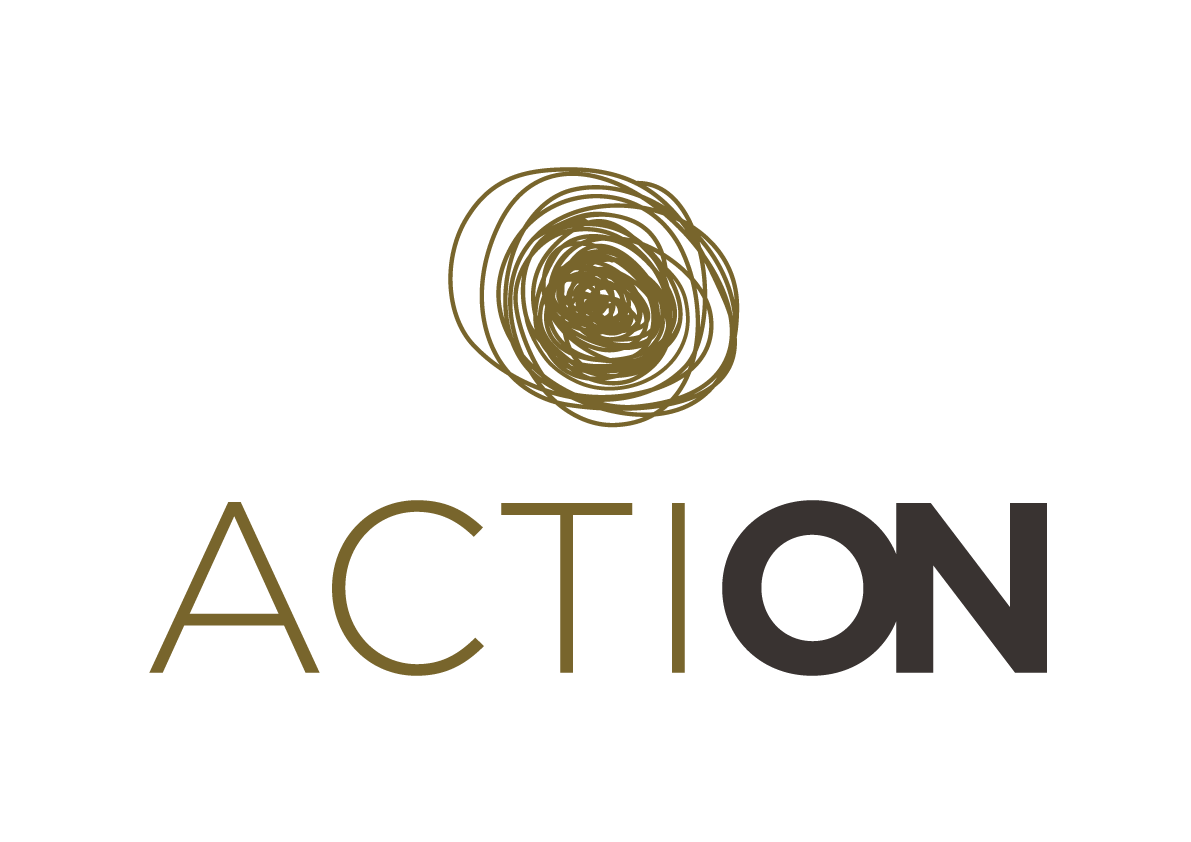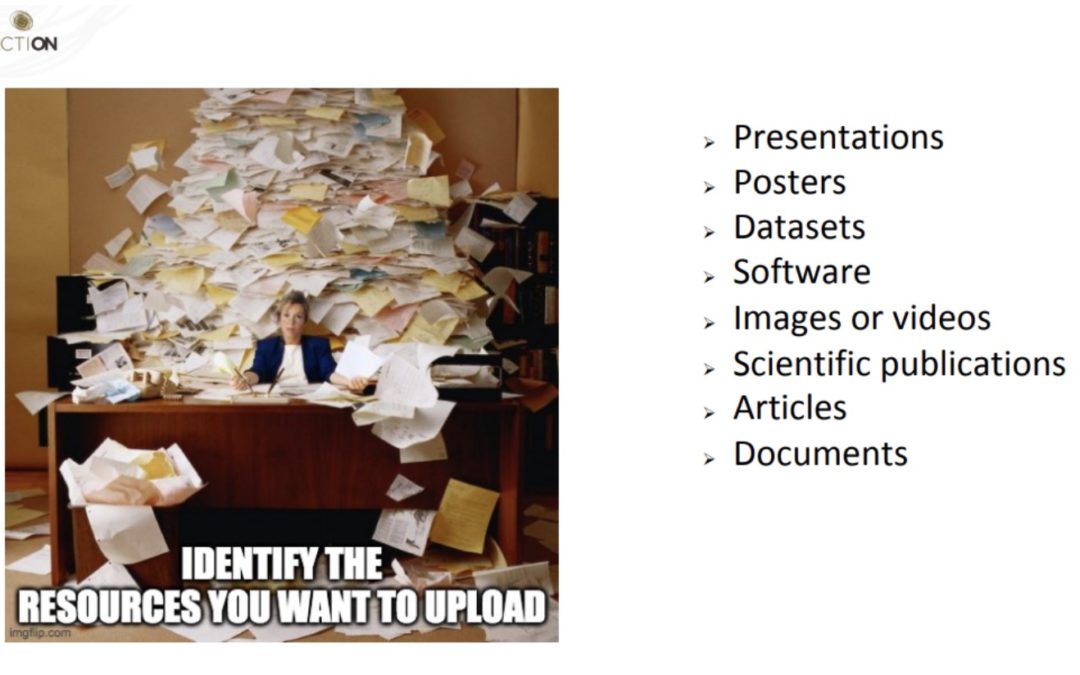Virginia de Pablo and Esteban González – The Ontology Engineering Group (OEG/UPM)
Last April, Esteban González gave a webinar on the importance of publishing the results of scientific research in open science repositories. The webinar was part of the actions carried out in the context of the open call launched last 2019 in which ACTION Project offered (to the winners) funding for a six-month pilot, provision of workshops, the chance to co-design and try out the tools of ACTION and working together with the project team to tailor the support they need to achieve their goals.
The webinar, entitled “How to upload resources to a research repository – Zenodo” and framed in the performances of the Open Call, has unveiled the ins and outs of this repository and has been a good opportunity to learn how to:
- Identify resources to deposit on a repository
- Create a community on Zenodo
- Upload resources to Zenodo
- Understand the metadata used to describe resources
- Publish a project outputs on Zenodo
The webinar gave a complete idea on the importance of publishing the resources of Citizen Science (CS) projects in a public repository, explaining that CS projects have to do “Science”, promote Open Science principles (FAIR) and offer the results in an open format. That’s why CS projects need a place to deposit the resources and an identifier for sharing these resources with other researchers.
The speech was an open door to Zenodo, the open-access repository developed under the European OpenAIRE program and operated by CERN that Esteban González choose for the webinar. Zenodo, as González explained, allows researchers to deposit data sets, research software, reports and any other research related digital artefacts.
The steps to create an user in Zenodo, how to create a community, the way to deposit and upload a resource and how to define the type of resource as well as the importance of the licences and the funding completed the webinar.

